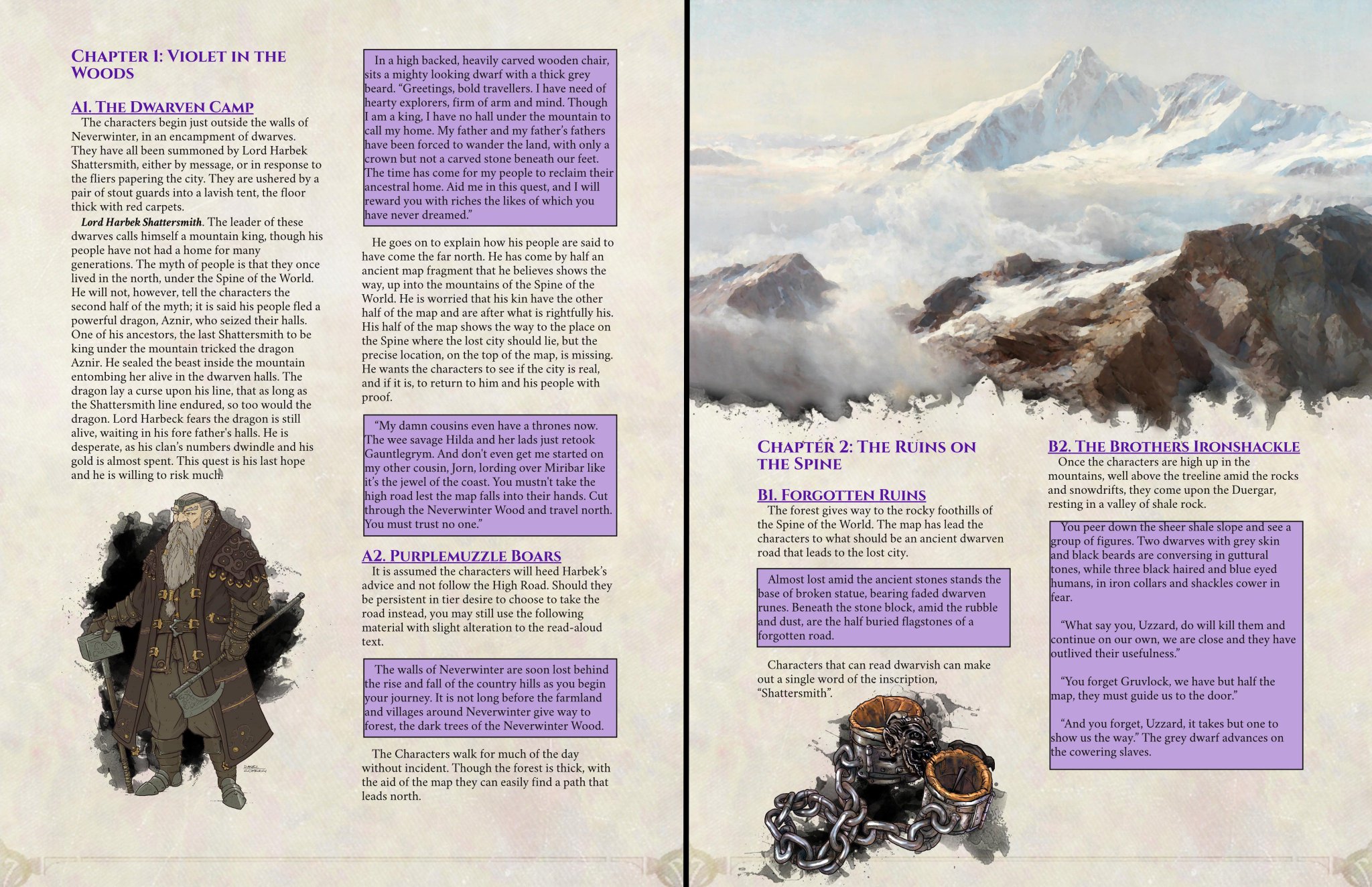 If you're totally unfamiliar, boxed text is a bit of narration that is generally tagged or keyed to an encounter area in an adventure. Most published adventures for the last few editions of the game have made copious use of them; the players I work with (and I) are so trained to look for them that when an encounter area doesn't have boxed text, we tend to think the area is not a "real area" or at the very least it's unimportant.
If you're totally unfamiliar, boxed text is a bit of narration that is generally tagged or keyed to an encounter area in an adventure. Most published adventures for the last few editions of the game have made copious use of them; the players I work with (and I) are so trained to look for them that when an encounter area doesn't have boxed text, we tend to think the area is not a "real area" or at the very least it's unimportant.While I understand the issues associated with boxed text, which I'll review shortly, it fills a necessary niche in the module. In very real terms, it's one of the main reasons I buy and run published adventures.
To the blessings:
- Boxed text cuts down on prep time. There. I said it. The number one reason I will always choose modules with boxed text over modules without is that it reduces the amount of work I have to do on the fly at the table.
- Boxed text reminds players that they're participating in a cooperative story. In between the inside jokes, quips about Mt. Dew and Cheetos, and the inevitable mechanical foul-ups that bureaucratize the experience of Dungeons and Dragons, boxed text re-centers the players (and the DM) on the story at hand.
- Boxed text allows the DM to worry more about the encounter than what the encounter looks like. If the players don't notice a key detail in read-aloud text, it can be repeated. If the DM has to make up an appropriate description on the spot, two problems arise: first, the DM may miss a crucial detail ("Oh, wait, the suits of armor are headless?") and second, the DM may end up contradicting their own descriptions on subsequent re-tellings ("I thought you said Jurime was a drow? That's the whole reason I wanted to hide!").
- Shawn Merwin: In a 2010 article called "Thinking Outside the Boxed Text," Merwin poses a scenario in which players' characters are tossed out of the narrative because the boxed text gets details about their game world experience wrong. His solution is an appropriate one: shift the focus away from "you" when writing boxed text; the 2nd person is a bit too specific to apply well across characters. Merwin's advice continues by saying to keep boxed text reasonably short, direct, and clear--something that all effective module writing should be.
- Courtney Campbell: In a 2013 article called "On the Definitive Inadequacy of Boxed Text," Campbell makes the case that boxed text causes more problems than it solves. His main contention seems to be that boxed text reads like fiction, that human beings struggle to use the particular kind of focus that boxed text requires for longer than a few seconds, and that therefore almost anything would be a better alternative to boxed text. The one "solution" proposed is to have the text that is written for the DM's own eyes to be slightly more evocative (only slightly!) and therefore to have the DM's information occasionally spill over into what the players hear. This emphasis increases prep time, removes the narrative element in favor of a focus on mechanics, and doesn't solve the problem of burying important details.